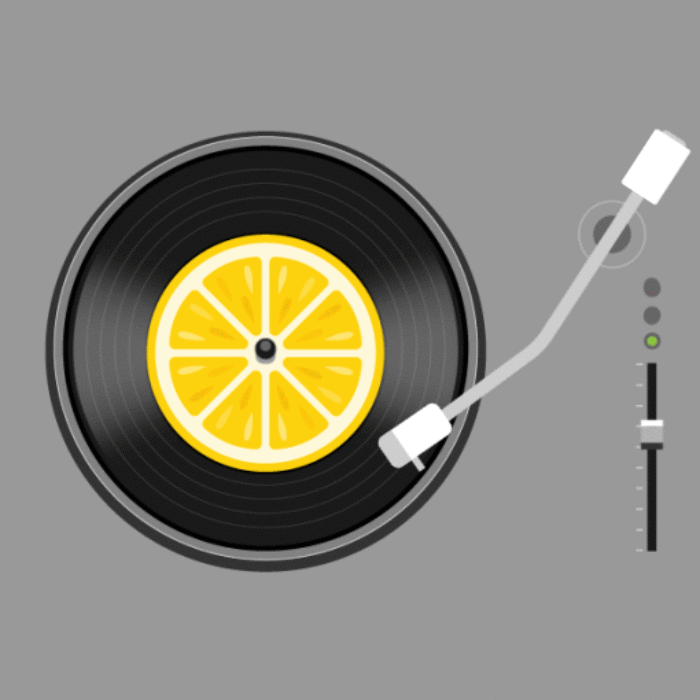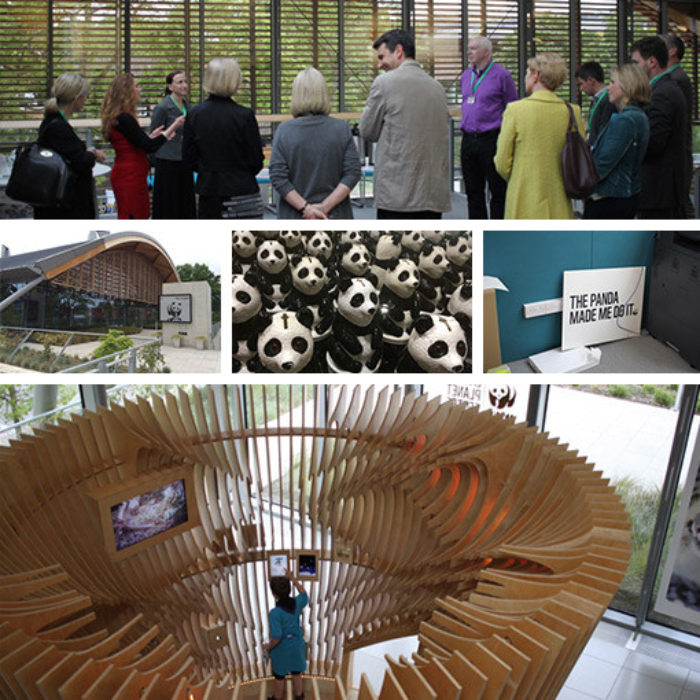Present tense
The future we didn’t prepare for
A few months ago, on a Monday night in June, Alvin Toffler died peacefully in his sleep.
Toffler was a giant of futurology – a now out-of-fashion investigation of what might come, and analysis of what the impacts of those things may be. It was Toffler who introduced the terms “Future Shock” and “Information Overload” to society – the first as the title of his 1970 book – one that we can now see accurately anticipated the challenges that the digital age would present to a whole world populace.
Culture shocked
In his introduction to Future Shock, Toffler wrote:
“In the three short decades between now and the twenty-first century, millions of ordinary, psychologically normal people will face an abrupt collision with the future… This book is about change and how we adapt to it. It is about those who seem to thrive on change, who crest its waves joyfully, as well as those multitudes of others who resist it or seek flight from it. It is about our capacity to adapt.”
When I first read this line at 18 I imagined that Future Shock would apply most pertinently to how we would cope with each new technology as it appeared: an LCD watch here, a computer chip there. Back then at the birth of the 80s, it seemed a paced problem.
But now we are actually in that future, and it seems to me that the real depth of Toffler’s 70s vision is his analysis of the psychological stress that technological progress condenses through its sheer volume and the relentlessness of the change it delivers, even as it also liberates us.
Freedom and the stress of applying it are the yin and yang of how Future Shock actually works. As cause and reaction these two factors more than any other yank at the direction of our society. And so today is less of a linear journey and more of a wild rollercoaster ride.
The timeline of Future Shock
The 70s was a troubled but progressive future-focused period. In the West especially, the patriarchal restrictive system was being dismantled, ordinary voices were being heard, labour was finally adequately rewarded, choice became a significant factor in every life, upward mobility blurred class lines, inequality was reduced and intolerance was fought. Though the decade ended with a significant cloud of economic strife, caused by relocation of industrial production overseas, the ground was set for a technological jump.
In the 80s significant profit, growth and affordable business computer systems began to appear everywhere as tech boomed and dynamic investment was everywhere. Yes, there was mega moneymaking in the cities but things were brighter everywhere else too. General freedoms continued to grow and we saw a new open, tolerant, progressive and unlimited world. “Take time to see the wonders of the world. To see the things you’ve only ever heard of. Dream life the way you think it ought to be. See things you thought you’d never ever see” sang the Human League. Largely, we couldn’t have agreed more.
However: “The problem is not whether man can survive regimentation and standardisation. The problem, as we shall see, is whether he can survive freedom” posited Future Shock.
In the 90s, widespread integration of the desktop computer revolutionised first the workplace and then the home for millions. New business was clean, modern and streamlined. It was exciting stuff. But we also got our first real taste of real technology-generated stress. The strange threat of The Millennium Bug to the electronic infrastructure that now controlled our lives was made all the worse by its incomprehensibility. Had it even been real?
Already this new world was becoming disorienting for many. They felt two steps behind; at best embarrassed, at worse defiant against the erosion of the world they had felt at home in. But society paid little heed to Toffler’s warning of “multitudes of others who resist it or seek flight from it.”
The 00s surged technology into every facet of our lives. Real-time global connection brought us Internet shopping, social networks and 24-hour news. We were irreversibly connected. But even as we largely enjoyed progress, the yin and yang were becoming very noticeable – change was everywhere in society and often disorientating:
- The Internet grew to a sophistication that heralded unlimited information access and communication, but it also unleashed a Pandora’s box, filled with dark horrors;
- Improved biomedicine hugely increased lifespan, but led to widespread worry about population growth impacts and gene abuse;
- Smartphones and tablets became ubiquitous, even essential, but at the cost of personal privacy; and
- Social media connected us to our families and communities. But it also revealed previously camouflaged hatreds and intolerance, and an appetite for celebrity and sensation that has shaped media reportage ever since.
Economic growth was dizzying in its arc, but it was also the elephant in the room: how was such sustained growth possible, what consequences awaited? Of course Toffler would have asked. But the world’s business and political leaders believed the battle won, the course set. They were not for turning.
The end of Futurism
Academic study of the implications of the future was quietly retired, replaced by the new and dynamic world of market forecasting – pragmatic, business-orientated, data driven.
Commerce and property intertwined; impressive shopping cathedrals appeared in every county, cities were clothed in reassuringly identical blankets of franchises, share prices and house prices rose, washing machine prices dropped. Nothing could go wrong.
Everything went wrong. Widely described as the worst financial crisis since the Great Depression of the 1930s, the global crash of 2007-08 brought shocking change at a level that very few had anticipated or prepared for. Billions were pumped into stabilising the ailing system – financed in part by the slashing of public services – in the keen hope of returning to normal.
The effect on the ordinary population was all-encompassing – worldwide psychological stress. Their confidence in the establishment plummeted. As the dust settled it was clear that we were all expected to pick up the tab for the unregulated actions of a high-level minority emboldened by laxly controlled and volatile financial systems to play and risk big. Societal equilibrium was now compromised, but was anyone paying attention?
From Future Shock to Present Tense
How have we, the world community, reacted to the actions taken after the great global crash? Inertia has evaporated. The crystallisation of our position in the scheme of things has launched a wildly reactive rollercoaster ride of confounding developments and mental distress:
- Worldwide protests against the 1%, all-consuming globalisation and the widening social gap that multitudes now see clearly and resent deeply;
- The stunningly unpredictable fall and overhaul of what were the three most enduringly powerful and trusted UK political parties;
- Brexit, which became the marker for the end of the unspoken mutually-beneficial societal agreement, and the beginning of a new journey beyond conventional process and the comfort zone of predictability;
- And the US election, which one-upped Brexit via a resounding condemnation of the establishment of one of the world’s biggest nations – rejecting a system that failed to tackle disorientating grassroots erosion of workplace and community in favour of a simplistic vision of change and restored former glories.
And there are many more, big and small. People are reacting, protesting, and savouring empowerment – emboldened first by online petitions that bombard politicians and business leaders with their concerns; from national policy to the conditions of workers who manufacture their purchases – and then to direct action.
And it can only grow in number and volume from here. In the future, the young and newly empowered populace will be fuelled, inspired and reinforced by social media interactions, dismissive of mainstream media, disenfranchised or too young for the promises of the last century. Their agenda will be clear – meaningful change, and a new mutually-beneficial equilibrium.
For many that will mean progress, unity, social democracy and freedom. But remember Toffler’s words, there are still “multitudes of others who resist it or seek flight from it.” For them, true freedom is nothing but anxiety – an absence of structure and security. Their vision is inward: a simpler place – an ordered and comfortable facia – a patriotic vision easily adopted by opportunists.
“Tomorrow’s illiterate will not be the man who can’t read; he will be the man who has not learned how to unlearn” warned Toffler.
Worryingly, in the face of this challenge, the organisations that most need to change in order to rebalance social stability for all our benefit are not doing so – perhaps because they too are suffering future shock and resisting change. They are maintaining their processes, PRing the fires they face rather than redesigning blatantly compromised operation and reward systems:
- The are still only looking at the now, not the future;
- They continue to practise clinical financial efficiency regardless of societal cost;
- They resist challenges to the authority of their singular vision;
- They miss the influence that their actions will have on forming our views of today’s global picture tomorrow; and
- In their fight to preserve their vision they stir up bigger clouds of dissatisfaction, reigniting those fires.
If mere refinement and efficiency remain the goal, if common sense and humility does not point to brave plans and new politics, victories will go to any and every contrary movement that simply promises to listen to the frustrated anger of their audience.
Re-embracing Futurism
The challenge we all face is huge, but it is not insurmountable. The good news is that history demonstrates that society has regularly, and almost willingly, slid into peril only to emerge refreshed – it seems to be a cleansing action.
To move forward successfully perhaps it’s time to reconsider futurology and Alvin Toffler – to imagine the many new ways forward and then consider which one will best suit the aspirations of all of us.
And it wouldn’t be a moment too soon. We are facing a brave new world:
- The Internet of Things
- Autonomous cars
- Virtual reality
- Artificial intelligence
- Environmental responsibility
- Bioscience
- Significantly extended human existence.
All this and more will impact hugely on billions of people – and very soon – with huge potential for backlash. As an example of the shock of the new, the nascent Internet of Things has already been hijacked by hackers due to people leaving their enabled household devices set to default passwords. How will people react to the discomfort and paranoia of a world in which their own home is hacked and used against them?
It is therefore in the interests of responsible governments and business to forge a new equilibrium as soon as possible, and then to work on new tools to manage the effects of future change: buffers, balancers, shapers – regulators designed to restore, grow and protect social cohesion.
It is clear that progress has been largely good for us and that change is inevitable, but we must control the pace of development, rather than be pulled forward into the daily unknown by blind market forces greedy for short-term advantage. For instance, I believe that by applying Toffler’s view of futurism:
- Leaders might start by scrutinising the logic of a ‘throw-away society’ or mixing in elements of Slow Movement practices to balance fast-paced developments.
- The ability to routinely and repeatedly stop and take stock, to anticipate and simulate perceived benefits and dangers for the economic and social fabric should be the essential tool of this century.
- It is clear that it is impossible to accurately forecast the needs of the work environ even a decade into the future, so adaptability rather than specialisation must be at the core of any future education plans, we must ingrain the ability to easily anticipate and re-choose as opportunities develop.
- Education cannot end at school. All people need a life-long relationship with change – a ritual – perhaps annual technology certificates, linked to free online community universities, promoting the benefits of social futurism.
Perhaps ironically Future Shock proves we can still learn a lot from the past. It can be a valuable resource of past dangers and successes for forging a better tomorrow. As Future Shock came to pass and delivered us into Present Tense perhaps we can use the past to create a better tomorrow. An informed future we can all keep up with and get behind.
Toffler closes his book with this: “These pages will have served their purpose if, in some measure, they help create the consciousness needed for man to undertake the control of change, the guidance of his evolution. For, by making imaginative use of change to channel change, we cannot only spare ourselves the trauma of future shock, we can reach out and humanize distant tomorrows.”
Alvin Toffler, writer and futurist, October 4, 1928 – June 27, 2016.



